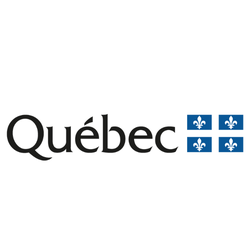
Open
REGI — Business Scale-up and Productivity — CED (QC) – Private sector
Last Update: November 24, 2025
QC, Canada
Financing to accelerate growth in Quebec
Loans and Capital investments
At a glance
Funding available
Financing goals
Marketing a product
Selling in a new market
Integrate new technologies
See more
Eligible Funding
- Up to 50% of project cost
Timeline
- Unspecified
Eligible candidates
Eligible Industries
- All industries
Location
- Quebec
Legal structures
- Non-profit
- Public or Parapublic institution
- For-profit business
- Non-financial cooperative
Annual revenue
- All revenue ranges
Organisation size
- All organization sizes
Audience
- Indigenous Peoples
Non-profit candidates
Sector of operation
- Economic, Social and Community Development
- Employment and Training
- Business Associations
Target groups
- Indigenous peoples
- Business owners / entrepreneurs
- Nonprofits / charities
Revenue structures
- All structures
Scope
- Regional
- Provincial
- National
Overview
Get a financial contribution to help you scale up and expand, adopt and commercialize innovative technologies and processes, or diversify your markets.
Activities funded
- Acquisition of production equipment or machinery and digital infrastructures.
- Evaluation, adaptation, or adoption of new technologies or production processes.
- Activities aimed at increasing productivity and production or innovation capacity.
- Commercialization and market development initiatives.
- Implementation of marketing strategies, including participation in trade shows, prospecting visits, hiring marketing personnel, and conducting advertising campaigns.
- Market diagnostics and market studies.
- Showcases and technological demonstrations.
- Hiring resources to establish high-performance teams.
- Adoption of exemplary management practices, processes, and systems, such as integrated management software.
Examples of admissible projects:
$ 37,500
Launching a new eco-friendly product line and attending international trade fairs
$ 137,500
Adopting new robotic technology for manufacturing
$ 27,500
Implementing a new digital inventory management system and training staff
$ 62,500
Upgrading production machinery for a chocolate factory
Eligibility
- The applicant must be a small or medium-sized enterprise (SME), cooperative, business group, non-profit organization (NPO), business support organization, or Indigenous organization.
- The project must support business expansion, productivity, and growth through innovation.
- The project may involve acquisition of production equipment or digital infrastructure, adoption of new technologies or processes, improvement of productivity or production capacity, commercialization activities, or adoption of exemplary management practices.
- The applicant should operate within admissible sectors such as manufacturing, food processing, information and communication technologies, multimedia, or life sciences. Other sectors may also be eligible.
Who is eligible?
- Small and medium-sized enterprises (SMEs)
- Cooperatives
- Business groups
- Non-profit organizations (NPOs)
- Business support organizations
- Indigenous organizations
- Manufacturing sector companies
- Food processing sector companies
- Information and communication technologies and multimedia sector companies
- Life sciences sector companies
Who is not eligible
- Retail businesses (e.g., clothing stores, grocery stores, automotive sales and service)
- Food service providers (e.g., restaurants, cafés)
- Transport services
- Residential construction companies
- Daycare services
- Hair salons and beauty salons
- Nightclubs, bars, and cabarets
Eligible expenses
All costs directly related to the project that are deemed reasonable by DEC and essential for its realization are eligible.
- Acquisition of equipment or machinery for production and digital infrastructures.
- Evaluation, adaptation, or adoption of new technologies or production processes.
- Activities aimed at increasing productivity and production or innovation capacity.
- Implementation of commercialization strategies.
- Market development and diagnostic studies.
- Technological showcases and demonstrations.
- Hiring of resources to establish high-performing teams.
- Adoption of exemplary management practices, processes, and systems.
Eligible geographic areas
- Quebec
- Economically vulnerable Regional County Municipalities (MRCs) in Quebec
- East Montreal
Selection criteria
The evaluation and selection of projects for this grant are based on specific criteria to ensure suitability and impact.
- Expected outcomes from the project.
- Viability of the business or organization.
- Technical and financial management capacity.
- Contribution from partners in financial resources or professional services.
- Degree of risk.
How to apply
1
Preparation of the request
- Assess the eligibility of your project based on the mentioned criteria.
- Prepare a detailed project description, including objectives for expansion, productivity, and innovation.
- Gather the required documents, such as a detailed budget and implementation plans.
- Obtain letters of support from financial partners or professional services.
2
Submission of the request
- Access the CERI program website to find the application form.
- Fill out the online application form by verifying all the information provided.
- Attach all required documents to the application form.
- Submit the application online before the specified deadline.
3
Request Follow-up
- Wait for confirmation of receipt of the request by the funding body.
- Prepare quick responses to any requests for additional information from the organization.
Additional information
- Applicants located in economically vulnerable Regional County Municipalities (MRCs) or in Eastern Montreal may benefit from eased program conditions.
- Other sectors and activities, beyond those specifically listed, may be eligible subject to assessment; applicants are encouraged to contact the program for clarification regarding their specific project.
Apply to this program
Frequently Asked Questions about the REGI — Business Scale-up and Productivity — CED (QC) – Private sector Program
Here are answers to the most common questions about the REGI — Business Scale-up and Productivity — CED (QC) – Private sector. This section explains what the program is, how much funding is available, eligibility requirements, application deadlines, and other important details to help you determine if this grant is right for your business.
What is the REGI — Business Scale-up and Productivity — CED (QC) – Private sector?
How much funding can be received?
Who is eligible for the REGI — Business Scale-up and Productivity — CED (QC) – Private sector program?
What expenses are eligible under REGI — Business Scale-up and Productivity — CED (QC) – Private sector?
Who can I contact for more information about the REGI — Business Scale-up and Productivity — CED (QC) – Private sector?
Where is the REGI — Business Scale-up and Productivity — CED (QC) – Private sector available?
Is the REGI — Business Scale-up and Productivity — CED (QC) – Private sector a grant, loan, or tax credit?
Apply to this program
More programs like this

Grant and FundingClosed
PSCE – Component 2
Investissement Québec (IQ)Non-repayable funding to support SMEs’ export market diversification

Grant and FundingClosed
MAPAQ — Food Processing Program — Component 2
Ministry of Agriculture, Fisheries and Food (MAPAQ)Enhancing productivity through food industry automation assistance

Grant and FundingOpen
ESSOR – Component 1C: Support for investment projects (implementing a digital plan)
Investissement Québec (IQ)Support for investment projects in Quebec

Grant and FundingOpen
SCALE AI — Acceleration
Scale AI ClusterSupports Canadian AI startups and SMEs focused on value chains

Tax CreditsOpen
Development of E-Business Tax Credit (CDAE)
Investissement Québec (IQ)Tax credit for development of a Quebec e-business

Tax CreditsOpen
Research, Innovation and Commercialization Tax Credit (CRIC)
Gouvernement du QuébecRefundable tax credit for Quebec business R&D and precommercialization

Grant and FundingOpen
Support for biofood exports - individual projects
Ministry of Agriculture, Fisheries and Food (MAPAQ)SEB supports Quebec agri-food market expansion outside Quebec

Grant and FundingSuspended
Individual Market Access Support (SIAM)
Aliments du QuébecMarket Access Support for Quebec Food Processors

Expert AdviceLoans and Capital investmentsOpen
Panorama Program
Investissement Québec (IQ)Supports export diversification with financial services and expert guidance

Loans and Capital investmentsOpen
Financing to respond to the offensive of new tariffs and for initiatives for resilient and exporting companies (FRONTIERE)
Investissement Québec (IQ)Supports Québec exporters impacted by new U.S. tariffs
Sign up to our platform to access the REGI — Business Scale-up and Productivity — CED (QC) – Private sector information sheet for free
Get access to 4,000+ programs, practical guides, personalized alerts, and an AI assistant to support your grant applications.